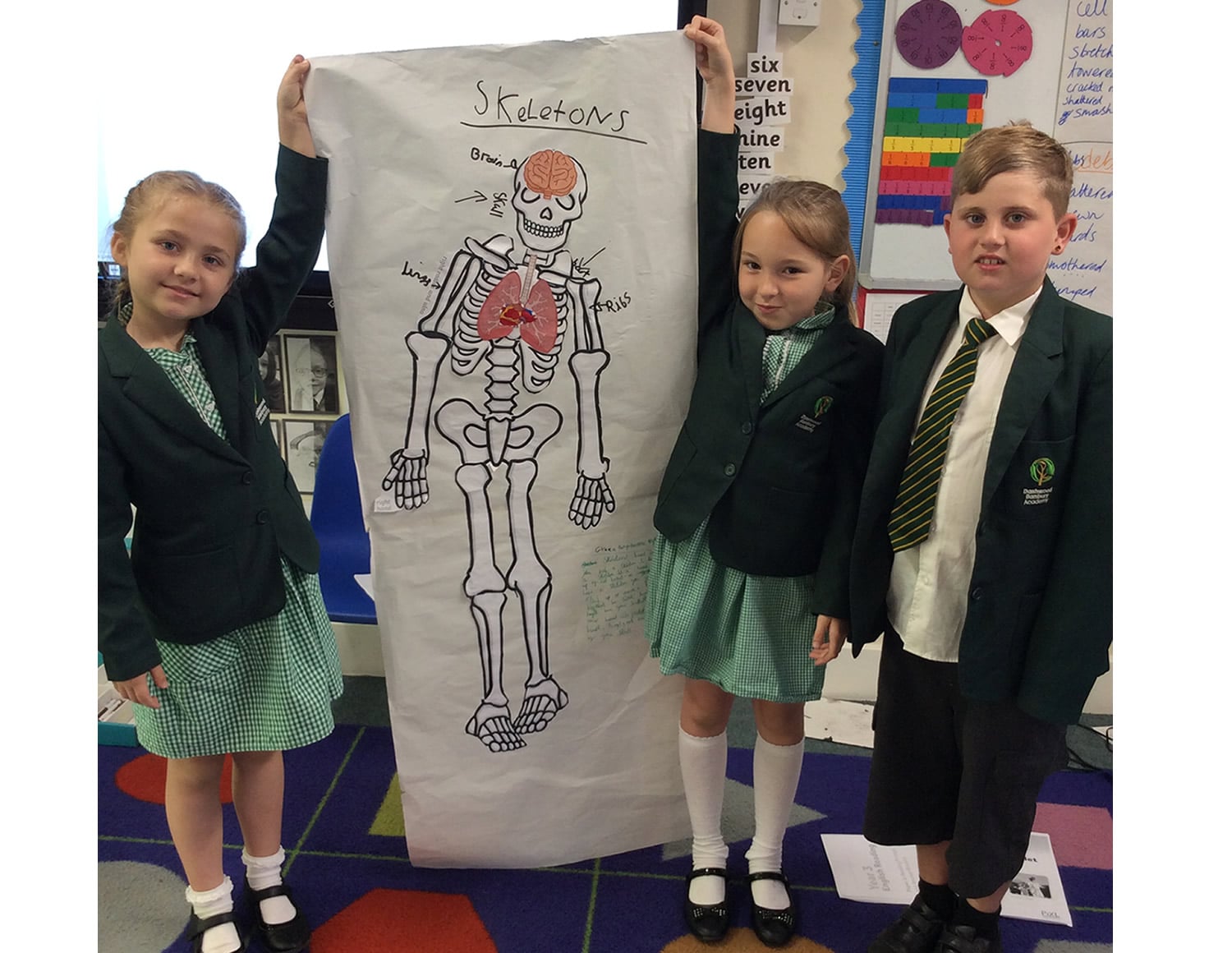Science
Science: Intent, implementation and Impact
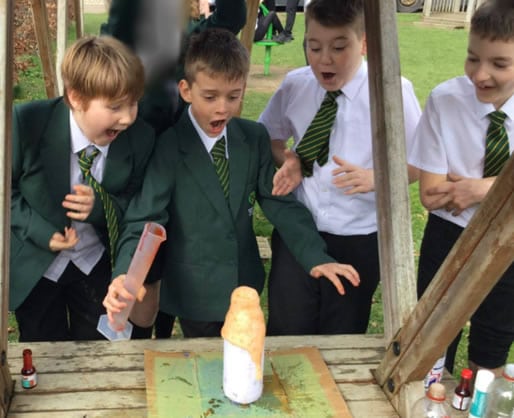 Intent:
Intent:
At Dashwood Banbury Academy we want our science lessons to inspire and develop children’s curiosity, sense of awe and wonder and equip them with an essential understanding of the world in which they live. A clear understanding of the three areas of science (Chemistry, Physics and Biology) will allow the children, both now, and as the adults they will become, to have a positive impact on an ever-changing world of societal needs and global challenges. Therefore, we have developed four whole school science threads:
- Children using different methods of scientific enquiry to answer scientific questions about the world around them.
- Children develop independence in asking questions, planning how to investigate them, carrying out and evaluating investigations.
- Children develop an understanding of key scientific concepts, including vocabulary and processes.
- Children have the opportunity to understand the implications of science today and in the future.
These threads are focussed upon throughout our science units so that the pupils are able to learn new concepts whilst developing key scientific skills. At Dashwood Banbury Academy, we aim to help children understand how science can create new knowledge, respond to specific challenges and improve people’s lives throughout the world.
We want our children to develop critical thinking skills through the asking of scientific questions, designing and implementing investigations as well as drawing conclusions and making valuable and accurate evaluations. Other skills we aim to develop through science include collaborative skills, careful, detailed and accurate communication skills using appropriate vocabulary, and an intent to explore possibilities. All of which are transferable to other curriculum subjects.
Implementation:
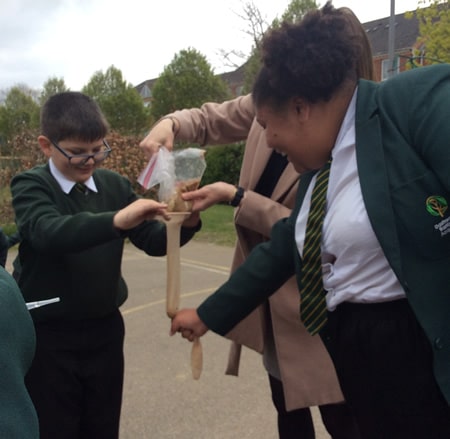 We have a comprehensive science curriculum that has a clear progression of knowledge and skills. Many scientific concepts are revisited multiple times throughout a pupil’s time at Dashwood Banbury Academy in order to embed and enhance progress and understanding. Science will be implemented in the curriculum in numerous ways:
We have a comprehensive science curriculum that has a clear progression of knowledge and skills. Many scientific concepts are revisited multiple times throughout a pupil’s time at Dashwood Banbury Academy in order to embed and enhance progress and understanding. Science will be implemented in the curriculum in numerous ways:
- It may be taught weekly or in a block. Learning objectives will be clear and well sequenced in order to build upon the skills each session.
- Lessons will begin with a Learning Question (LQ) which the children are required to answer throughout a lesson or sequence of lessons.
- Where possible, children will design and carry out their own practical investigations to answer scientific questions. The children will make predictions, plan, carry out and evaluate their own investigations.
- From Nursery to Year 6, Children will revisit many key concepts in greater detail. This will develop their knowledge, skills and understanding.
- Some science outcomes will support other curriculum areas. These could be the use of information technology to produce a presentation of findings, maths linked to the recording element of data collection, the presenting element of graphs or through sorting in Venn diagrams. Literacy skills are also developed through science teaching. For example, children in Year 6 create biographies of important scientists. Another example is where Year 2 children create a fact file on animals or where Year 3 design an informative leaflet on ways to stay healthy.
- At Dashwood Banbury Academy, we have a wide range of resources to support practical science.
- Where appropriate, information technology is used to support scientific understanding. F
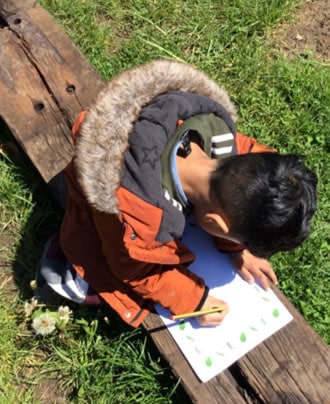 or example, through videos or through Virtual Reality equipment. Year 5 has found out about the planets through the use of VR.
or example, through videos or through Virtual Reality equipment. Year 5 has found out about the planets through the use of VR. - We have excellent links with Futures Institute Banbury where the children in upper key stage two visit to extend their experiences of science. For example, the children gain an insight into key stage 3 science through their use of Bunsen burners or observation of animals. These sessions are always fun and engaging and offer a real insight into the STEM subjects.
- Our own forest school area is used to help children learn about minibeasts, habitats, plants and seeds.
- Each year, we run a Year 2-6 school science competition focusing on investigative skills where children really take ownership in all elements of their own investigations. Winning teams from each class display their investigations in the school hall for overall judgement.
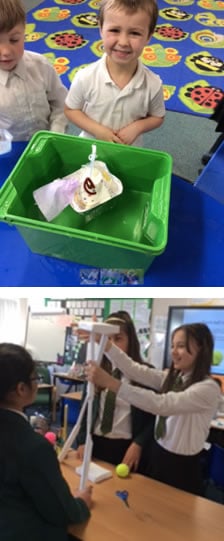 Intended Impact:
Intended Impact:
- For children to enjoy all aspects of the science curriculum. Information will be gathered via pupil and staff voice as well as through evidence of children’s learning.
- Children will gain independence in their science investigative skills.
- The revisiting of scientific concepts will reinforce and deepen children’s knowledge and skills.
- Practical science will promote curiosity.
- To educate children about ways in which they can improve their lives now. For example, through staying physically healthy, looking after living things or looking after the environment.
- Children will have a growing awareness that they can play an important role in the future world they will live in, making it a better place.
- Science outcome will develop other curriculum areas, including maths and literacy as well as other crucial skills such as collaborating, evaluating and presenting.
- Progress will be assessed through outcomes of assignments and a formative assessment will be given 3 times throughout the school year in our data collection points.
Chemistry Skills and Knowledge
